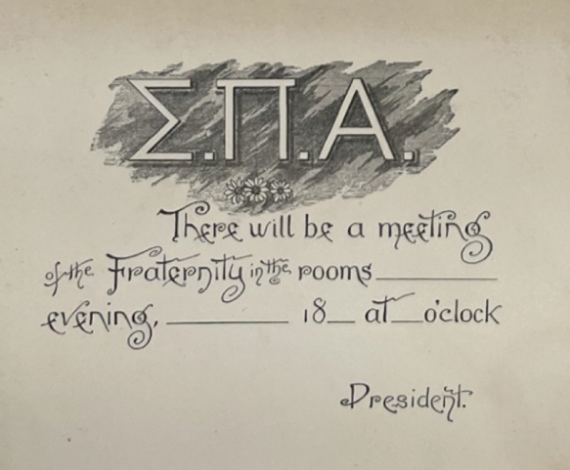'You have met
'You have met
every challenge'
Family, friends and faculty celebrate graduating seniors in the Academy’s 244th year.
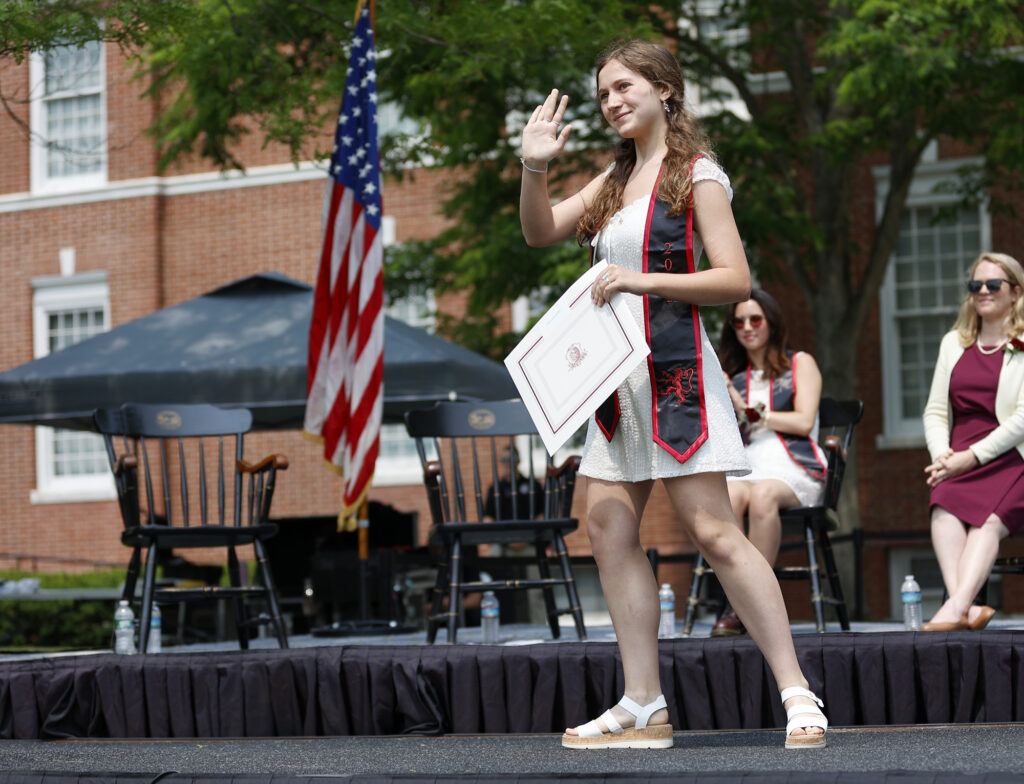
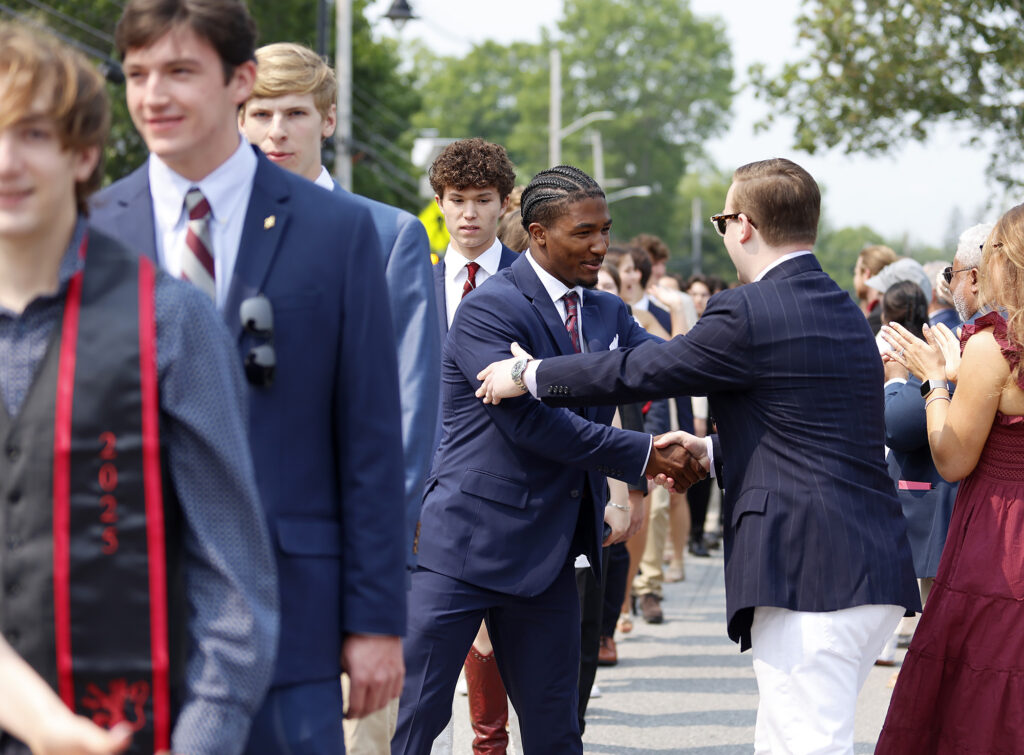

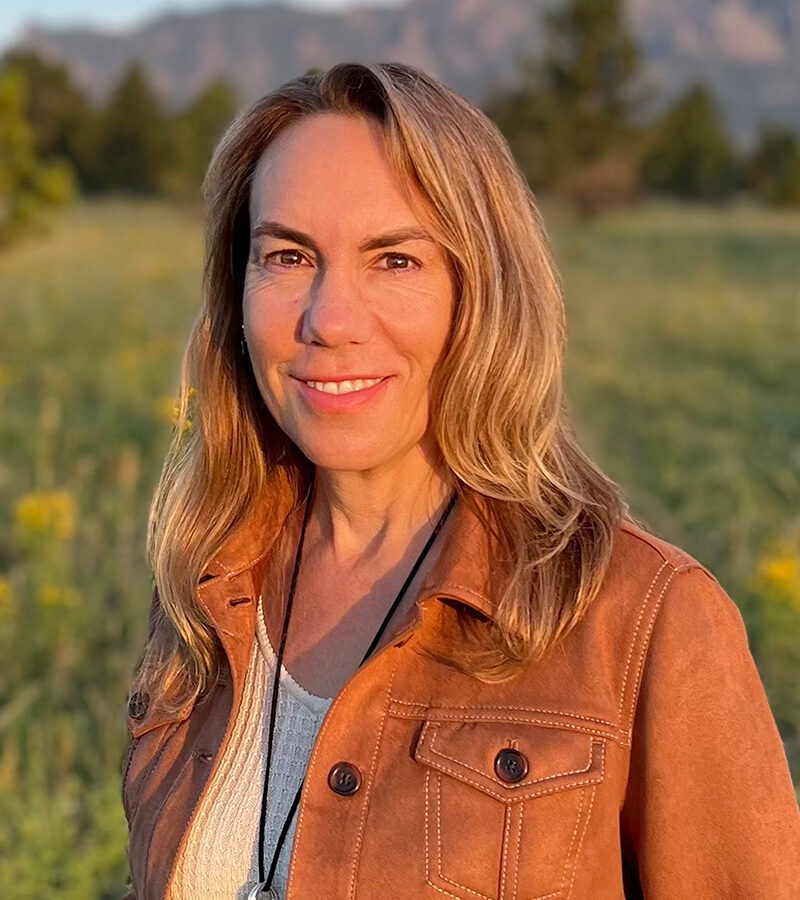
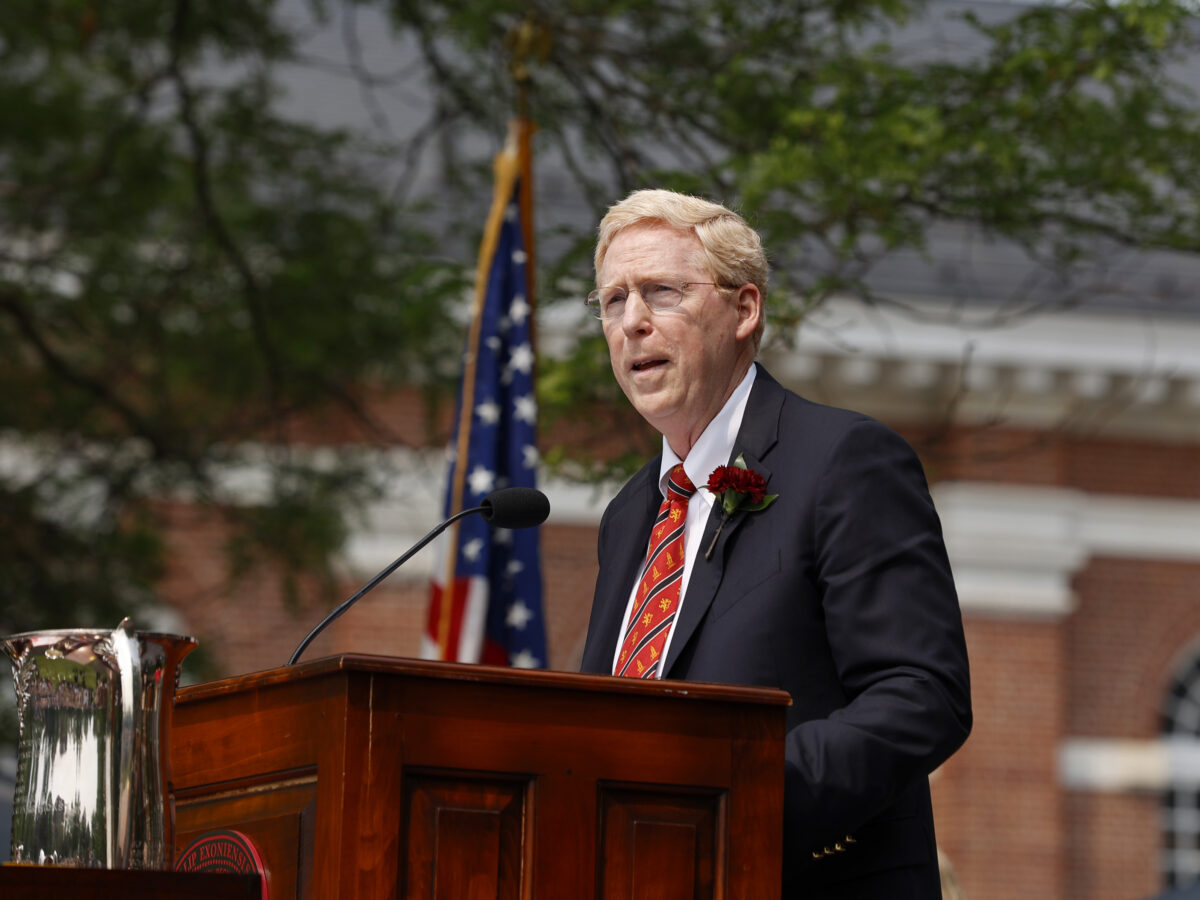



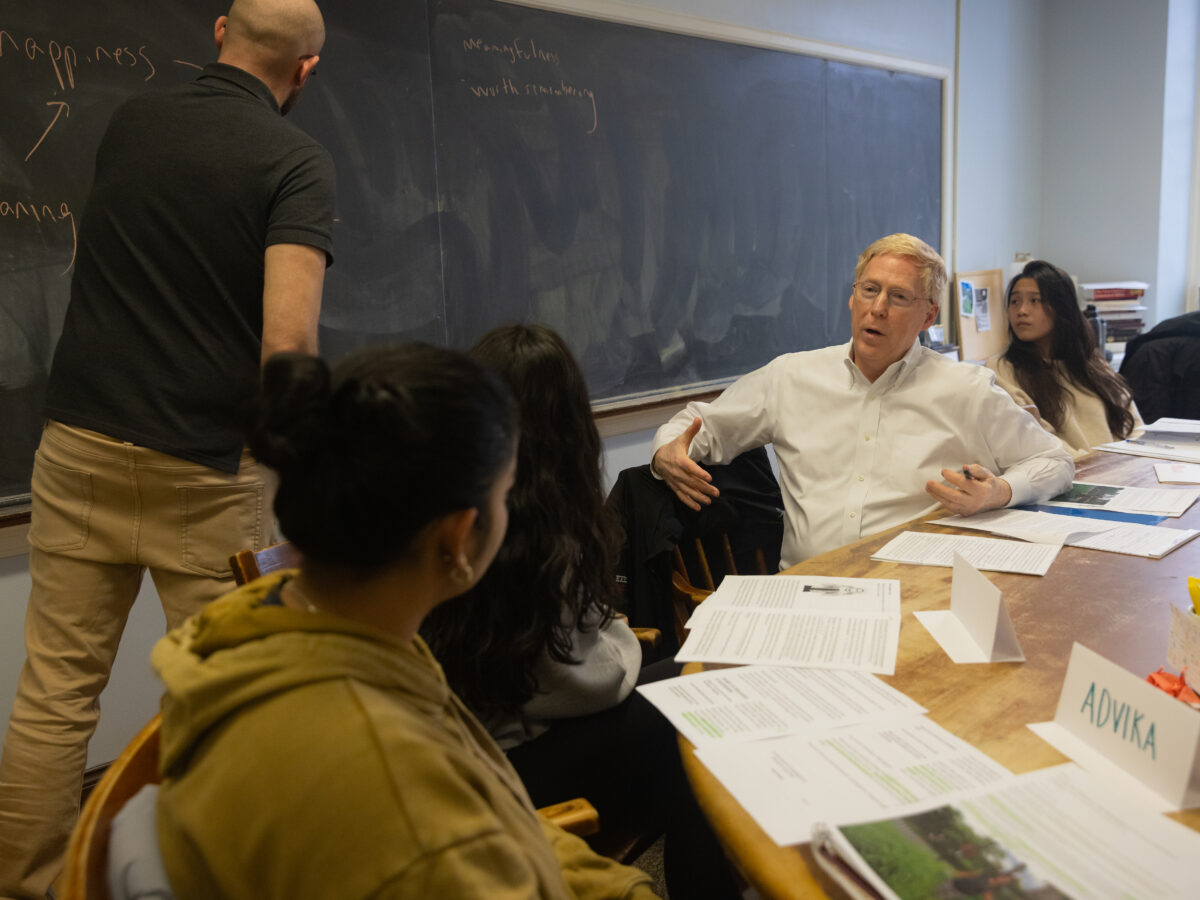
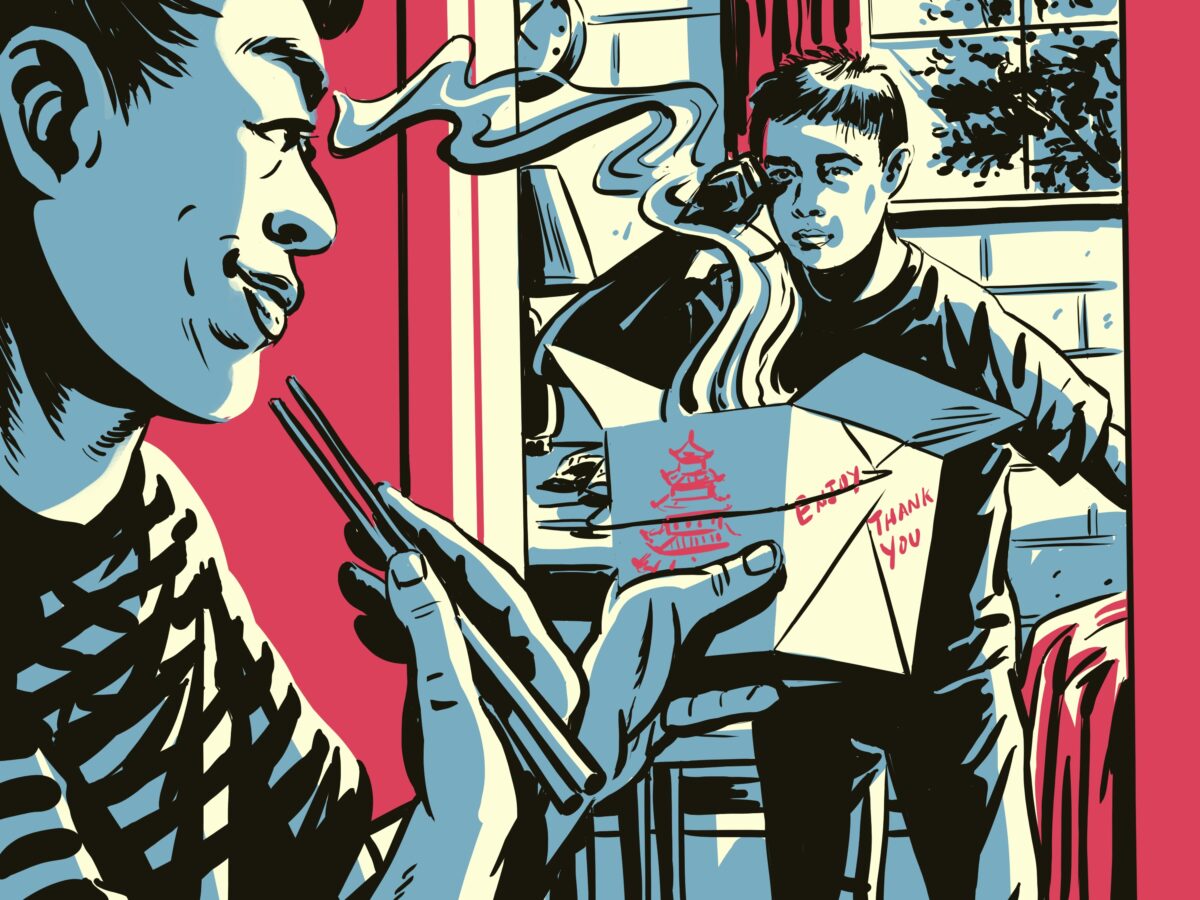
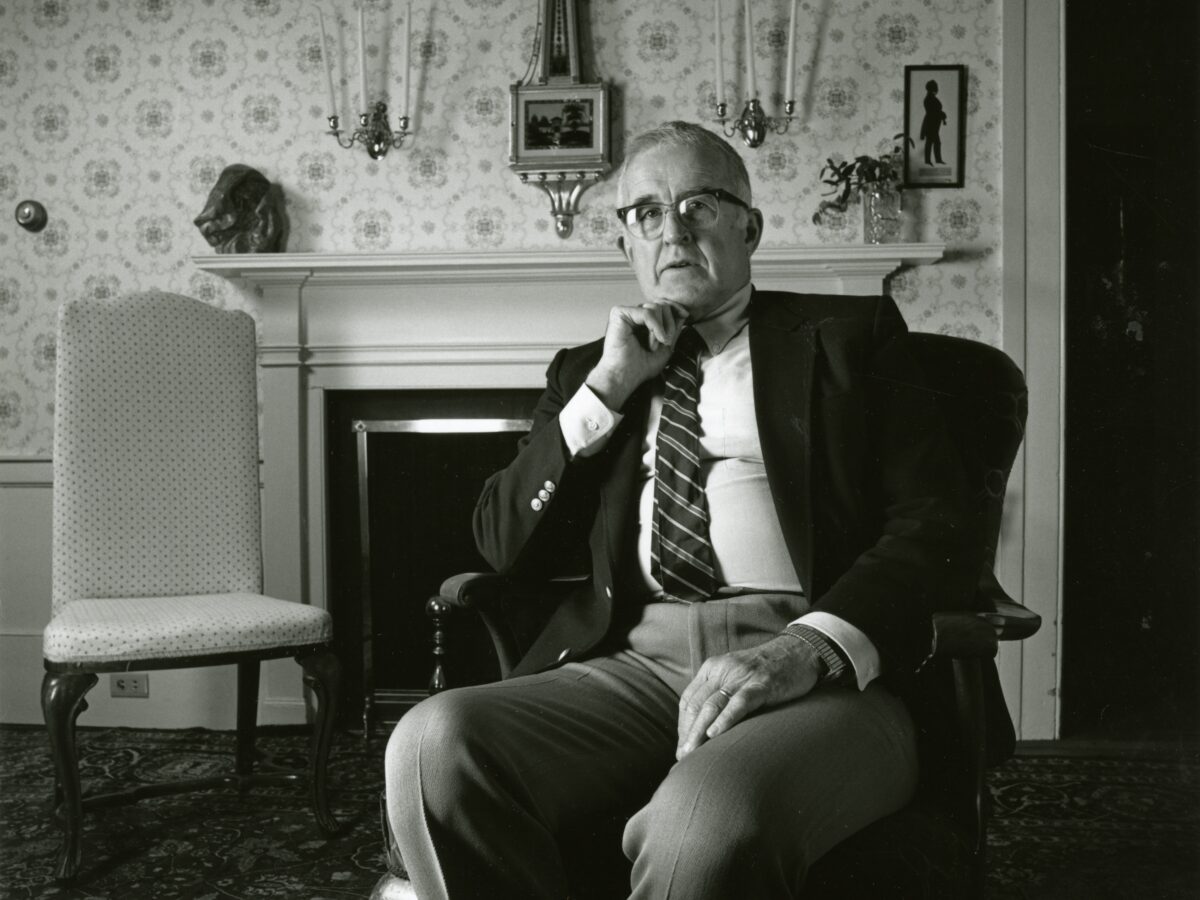
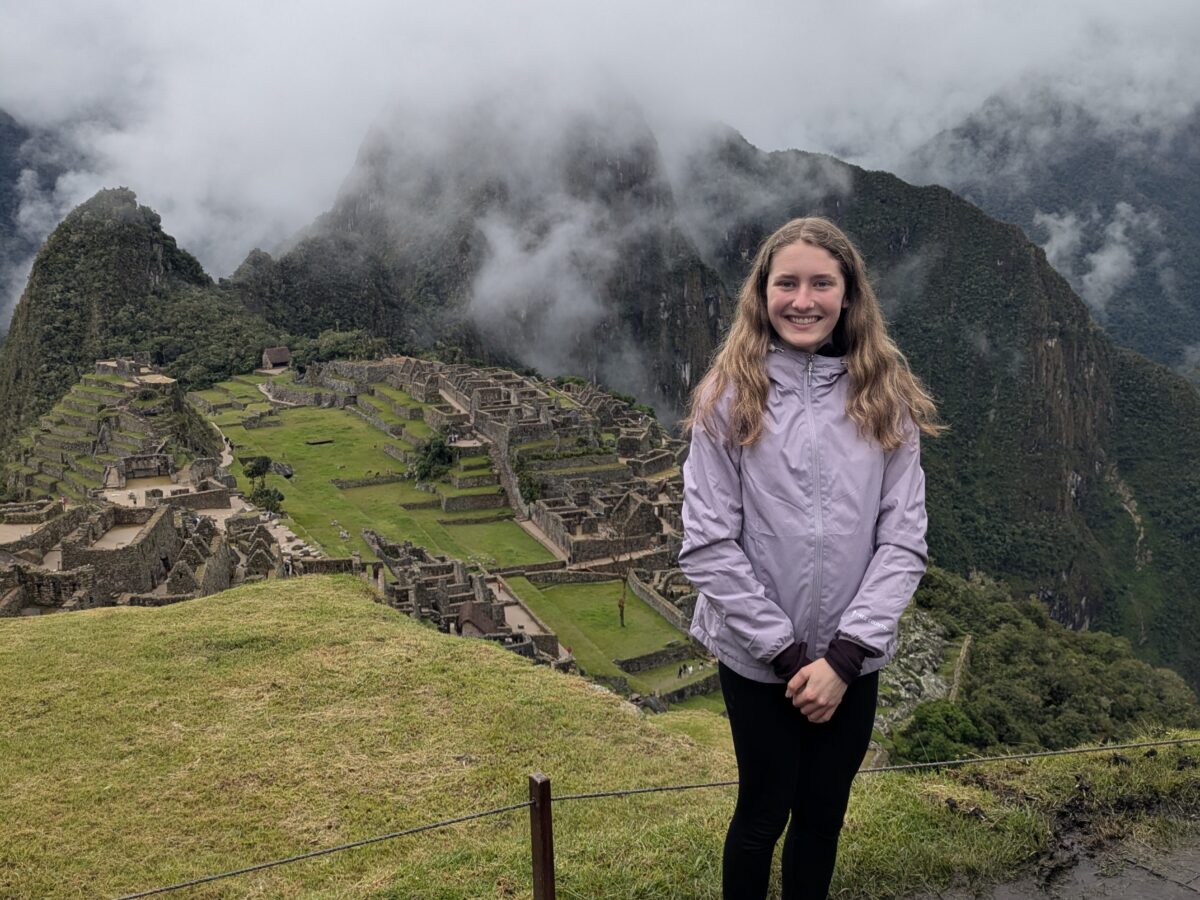
“New England winters are tough,” says Lauren Josef, chair of the Theater and Dance Department. “We need joy. We need weird.” Exeter’s performance of The 25th Annual Putnam County Spelling Bee brought all that and more to The David E. and Stacey L. Goel Center for Theater and Dance. The fast-paced and riotous musical featured six “middle schoolers” and audience participants who spelled their way through vexing vocabulary while sharing hilarious and poignant personal stories.
“I think one of the reasons this show has felt so special is because early on we said, ‘This is not going to be a traditional show,’ ” says Josef, the production’s director. “We told the students: ‘You’re going to be interacting with the audience. You might be throwing things. You’re going to be in character preshow and bringing everybody into this environment.”
Delivering such an immersive experience took creativity and collaboration. Here’s a behind-the-scenes look at the way the show took shape.
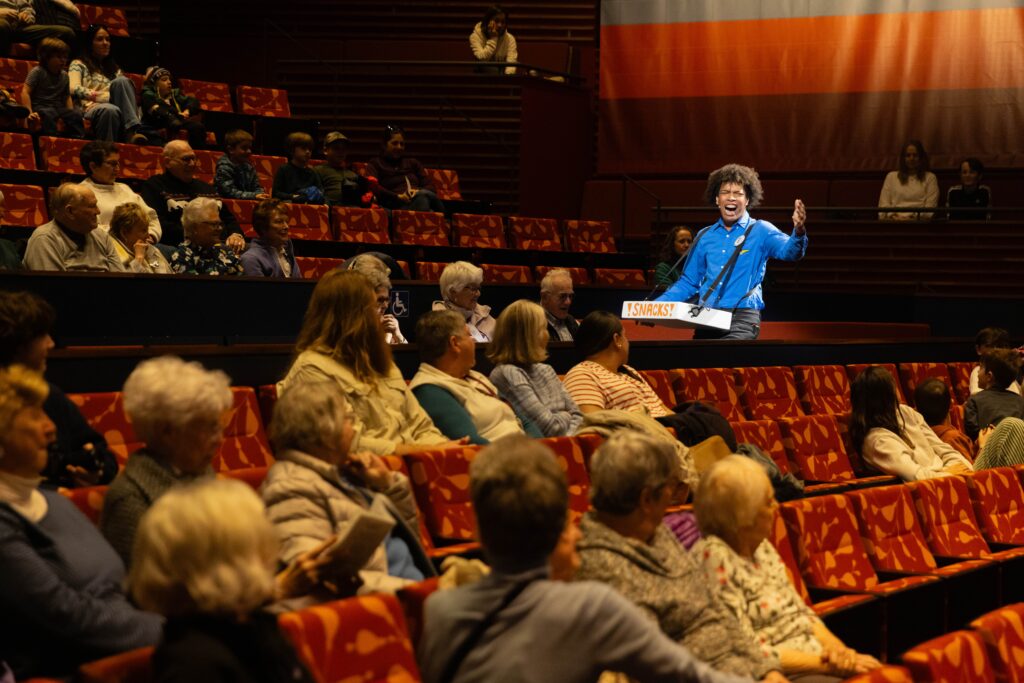
Student actors interact with the live audience.
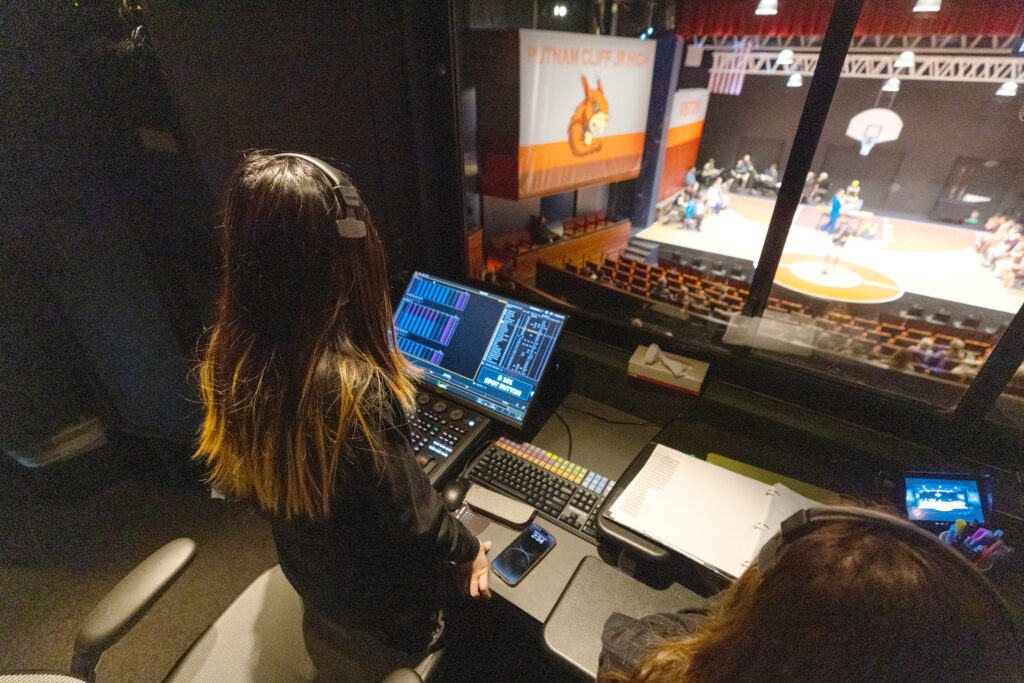
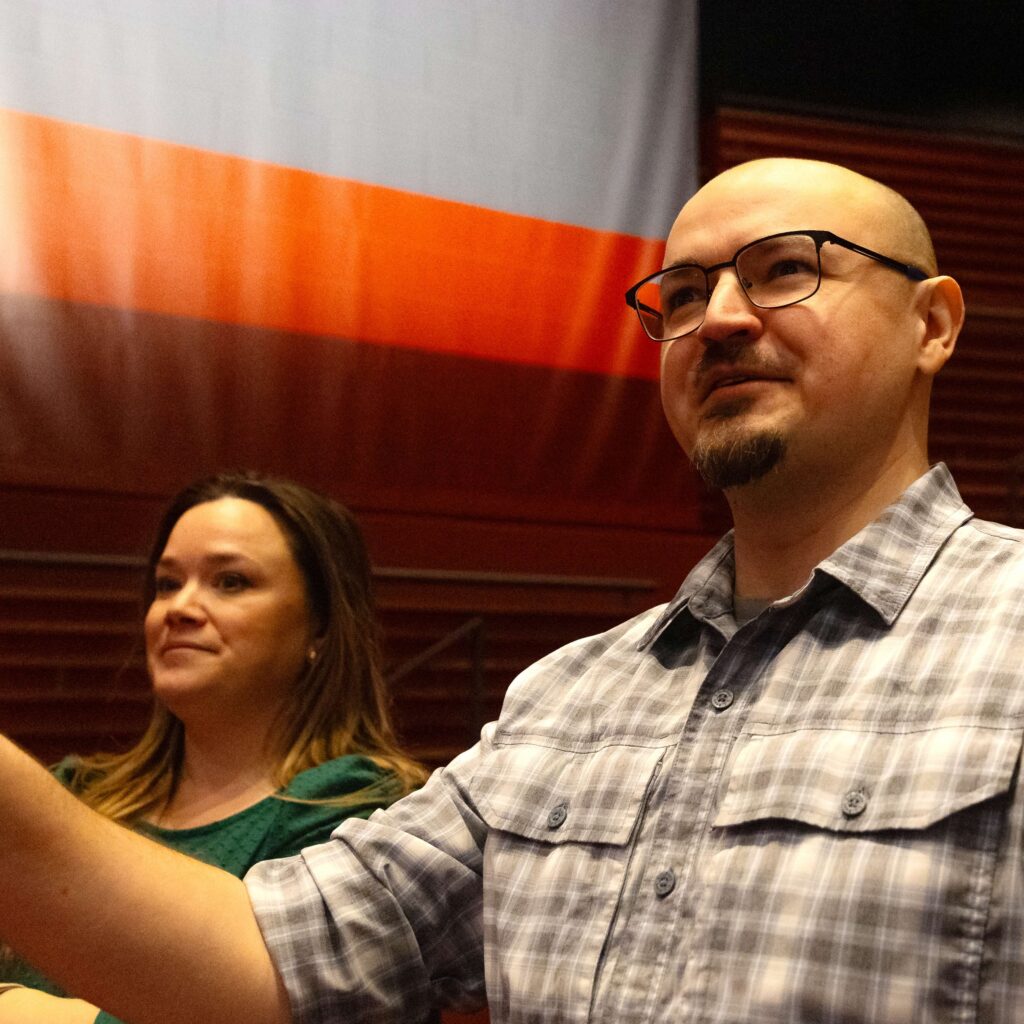
Instructors in Theater Lauren Josef and Anthony Reed stand in the lighting and sound booth.
hours to paint a gym floor onstage
cast and crew members
body microphones
lighting cues
minutes running time
You would forgive Meg Foley if at some point during the next academic year she started her workday by walking to the northeast corner of the Academy Building — and into somebody else’s classroom. That kind of muscle memory develops from teaching in the same space for nearly two and a half decades.
But in July, Foley will transition to a new role, dean of faculty, and away from her corner room with the views into two quads. “I’ve had the chance to switch rooms over time, but I’ve always stuck with this room because I love the classic features,” she says. “And I love the vantage point. As people are leaving the building, especially after assembly, students or colleagues from other departments will pop in to chat. I’ll really miss that.”
Foley says she’ll also miss those moments of connection around the Harkness table, where — for 50 minutes each class — everything outside Room 030 fades away and meaningful discussion takes over.
“There are various tributes to my home state of Minnesota sprinkled around the room. I’ve got the ‘Purple Rain’ cover of The New Yorker from when Prince died, the Minnesota Twins Homer Hanky and Boundary Waters prayer flags.”

“These maps are so old; this one is from 1954. The country borders have changed, of course, but when you’re teaching history, that can be useful! They’re so fragile, I’m always worried that they’re going to rip.”
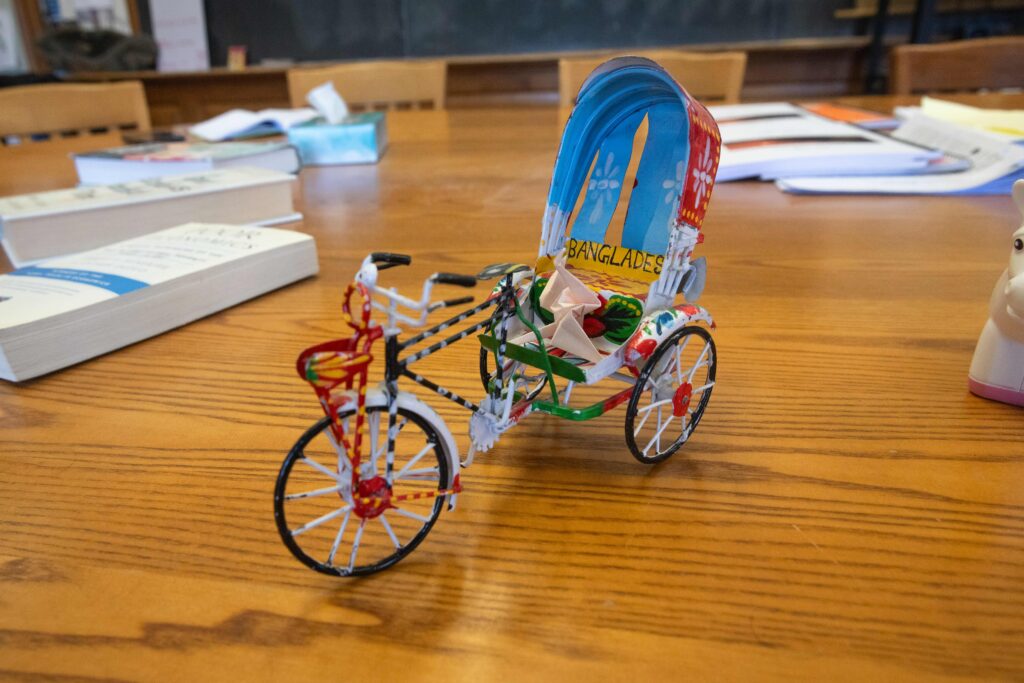
“I like to have a few little toys out that kids will sometimes play with or just hold while they’re talking or at the table. I started the course Why Are Poor Nations Poor? and a student who lived in Bangladesh came back from winter break and brought me this tiny rickshaw. She told me all about the marketplace where she bought it and the artisan who had made and sold it to her. So much of her story aligned with themes in the course.”
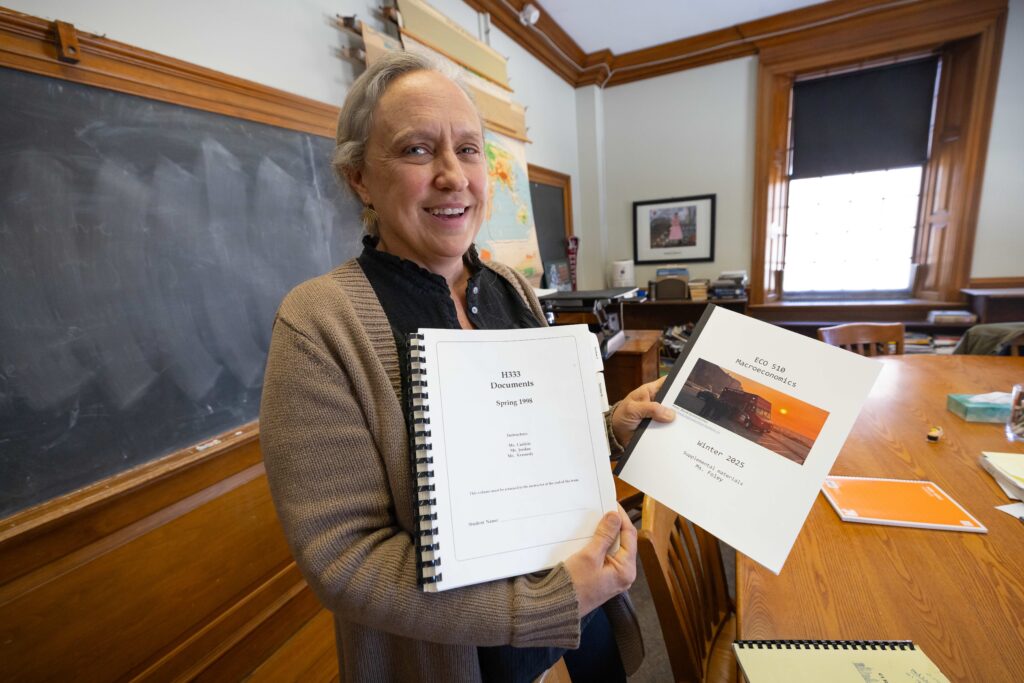
“These are document readers for two courses, one from 1998 and one from this year. With our teaching, there’s kind of a lineage to it. You start by working with somebody off of their syllabus and then you make changes and adjustments and slowly it becomes your own. Or maybe you make a radical break and it becomes your own suddenly. Then someone else starts teaching the course and you share your syllabus with them and they make their additions and you add some of their additions to your own. When you look back at these readers, you can see that lineage.”
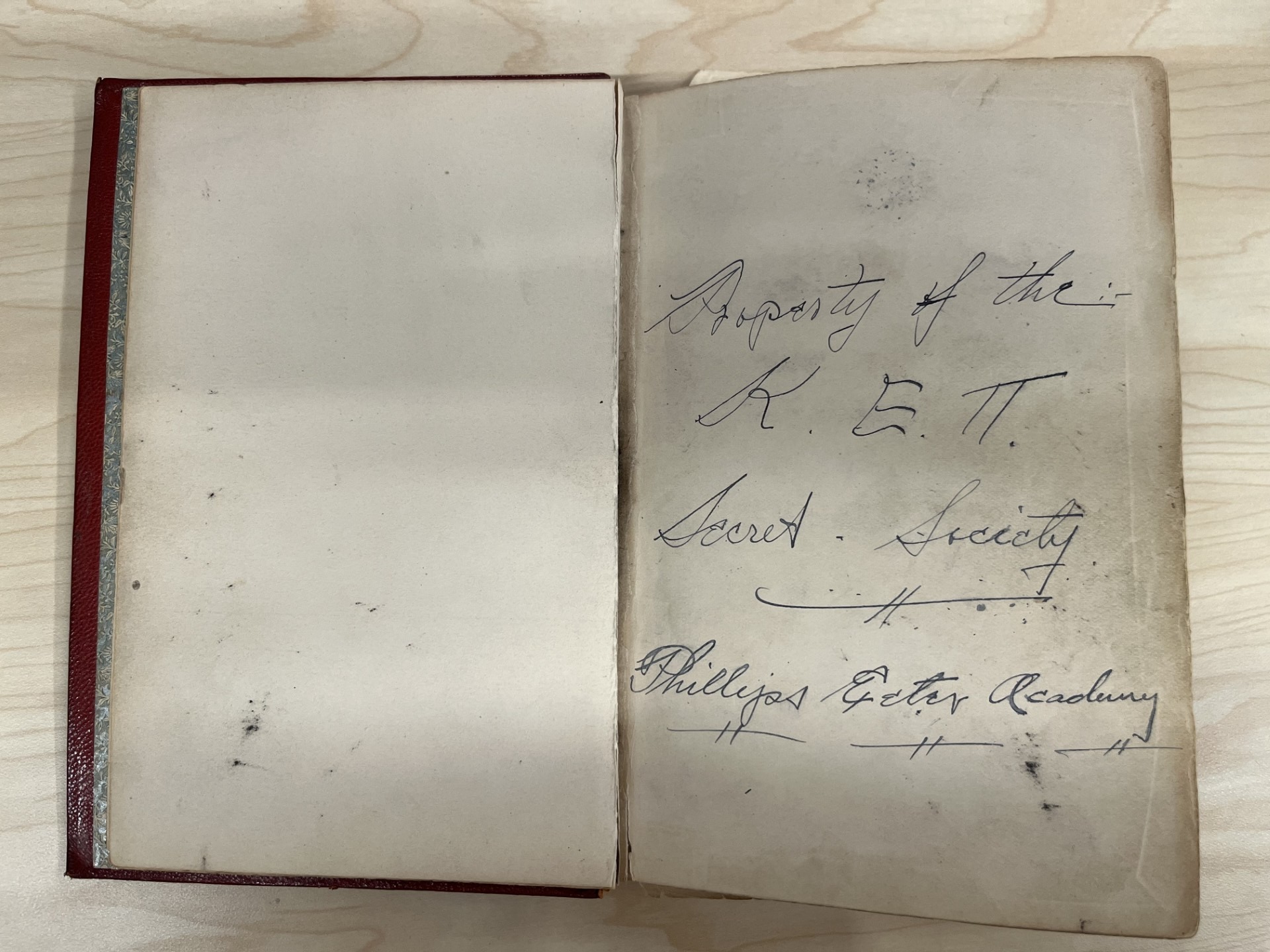 Skulls, crossed bones, swords and smoke — these are just some of the iconic symbols that represented Exeter’s early secret societies, or fraternities. Their origins trace back to 1818, when the Golden Branch Literary Society emerged as a secret organization. The first fraternity, Pi Kappa Delta, was started about 1870, but not until the 1890s did a growing number of these groups begin to stir intrigue, mystery and controversy.
Skulls, crossed bones, swords and smoke — these are just some of the iconic symbols that represented Exeter’s early secret societies, or fraternities. Their origins trace back to 1818, when the Golden Branch Literary Society emerged as a secret organization. The first fraternity, Pi Kappa Delta, was started about 1870, but not until the 1890s did a growing number of these groups begin to stir intrigue, mystery and controversy.
As a 1935 article in The Exonian described, the secret societies distressed some faculty and the administration: “They openly opposed faculty authority. The initiations were held late at night, and in some cases, all night, and the candidates were injured both mentally and physically, so that their class work began to drop.”
The initiation ceremonies, as chronicled in the article, were both eerie and humiliating. One society, for instance, took initiates to an old burial vault lit only by candles. Other societies, it recounted, were notorious for their physical tests, including branding candidates with a cigar and requiring candidates to appear in “fantastic and almost no clothes at classes, sell peanuts to the faculty and townspeople, and make speeches from a soap box at what is now the town bandstand.”


